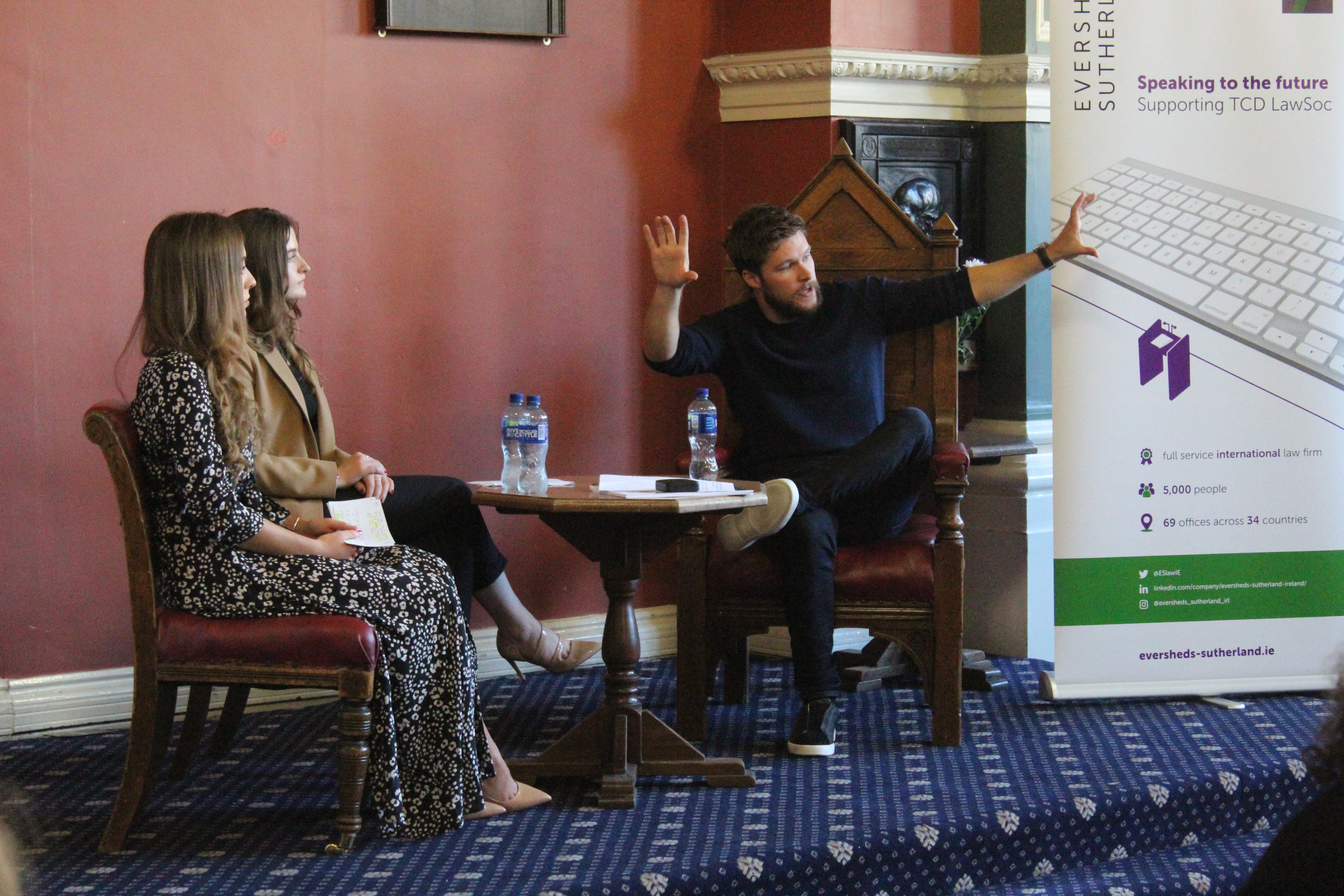This Wednesday an air of excitement was palpable, as a group of students gathered in the GMB awaiting the arrival of acclaimed Irish actor Jack Reynor. The 27-year-old, who was born in Colorado but spent his childhood in Ireland, has acted in a huge variety of high-profile films, including Sing Street, What Richard Did, Transformers: Age of Extinction and Midsommar.
When the clock struck two, Reynor strutted into the GMB’s debating chamber in a manner that trod a thin line between confidence and cockiness. To kick off the event, which was co-hosted by TCD Law Society and DU Film Society, Reynor was awarded the third Trinity College Praeses Elit Award. After some brief fanfare upon its presentation, Reynor took his seat for the second — and most interesting — part of the event: a question and answer session.
Reynor’s Irish heritage is evidently hugely important to him, and he discussed the topic at length during the conversation. Despite having worked all over the world, he claimed that “it is Irish films and Irish stories that resonate with [him] most”. Consistently articulate and charismatic, Reynor’s speech was sprinkled with plenty of humour that had the audience in stitches of laughter at several points. When questioned about working in America, he claimed that “White American actors hate us, because it is the Irish, the Brits, and the Australians who are getting all of the roles.” While this statement was delivered in a lighthearted way, he undoubtedly believed in the veracity of this statement. Once the laughter had subsided, he elaborated, asserting that people tend to understand performances by Irish actors more than those of American actors, because there is a richness in our culture that hasn’t developed in the United States.
Acting is often a deeply emotional experience for Reynor. During the production of Kin, a science-fiction crime-drama film directed by Jonathan and Josh Baker, his grandmother, who had raised him, became ill and died. His contract dictated that he was not allowed to return to Ireland for her funeral, and he described being forced “to suspend the searing grief he was in” to play a character so far-removed from his own situation was the “hardest thing” that he has ever done. Certain roles, he asserted, have the power to “mess with your head”, and he finds maintaining good mental health to be essential when he is working.
Not only is Reynor a successful actor, but he has recently made his directorial debut with a short film entitled Bainne, which he described as a personal, Irish story rooted in the country’s mythology. Directing a film, he said, “was by far the most creatively fulfilling experience” of his life. Despite his apparent self-assuredness, Reynor admitted that in reality, he has spent most of his career “feeling a little bit uncomfortable with [himself]”. However, this is something that he has now overcome, and his newfound confidence enabled him to finally “tell a story that was [his] story”. He is currently writing a script set during the 1980s, which is “partly about the Catholic Church”.
Reynor also mentioned his concerns about the future of film throughout the conversation. He noted that he “see[s] the culture of [cinema] dying out”, which he said is a “scary” prospect. While he believes that the popularisation of platforms such as Netflix and Amazon contribute to this problem, he claimed that it is equally the fault of the public’s lack of attention-span because of the constant presence of phones and social media. He hypothesised that the reason Midsommar only made half of the money that Ari Aster’s first film, Hereditary, did, was because Midsommar was two hours and 20 minutes long. When directors are under pressure to create films that are short in length, it makes it difficult for them to be “really artistically interrogating what [they] are creating”, he emphasised.
After almost an hour, Reynor departed once again, leaving his audience with a greater insight into the Irish and international film industry, as well as a lasting sense that, despite what he might think, the future of film could not possibly be at risk while people like Jack Reynor are around to fight for it






